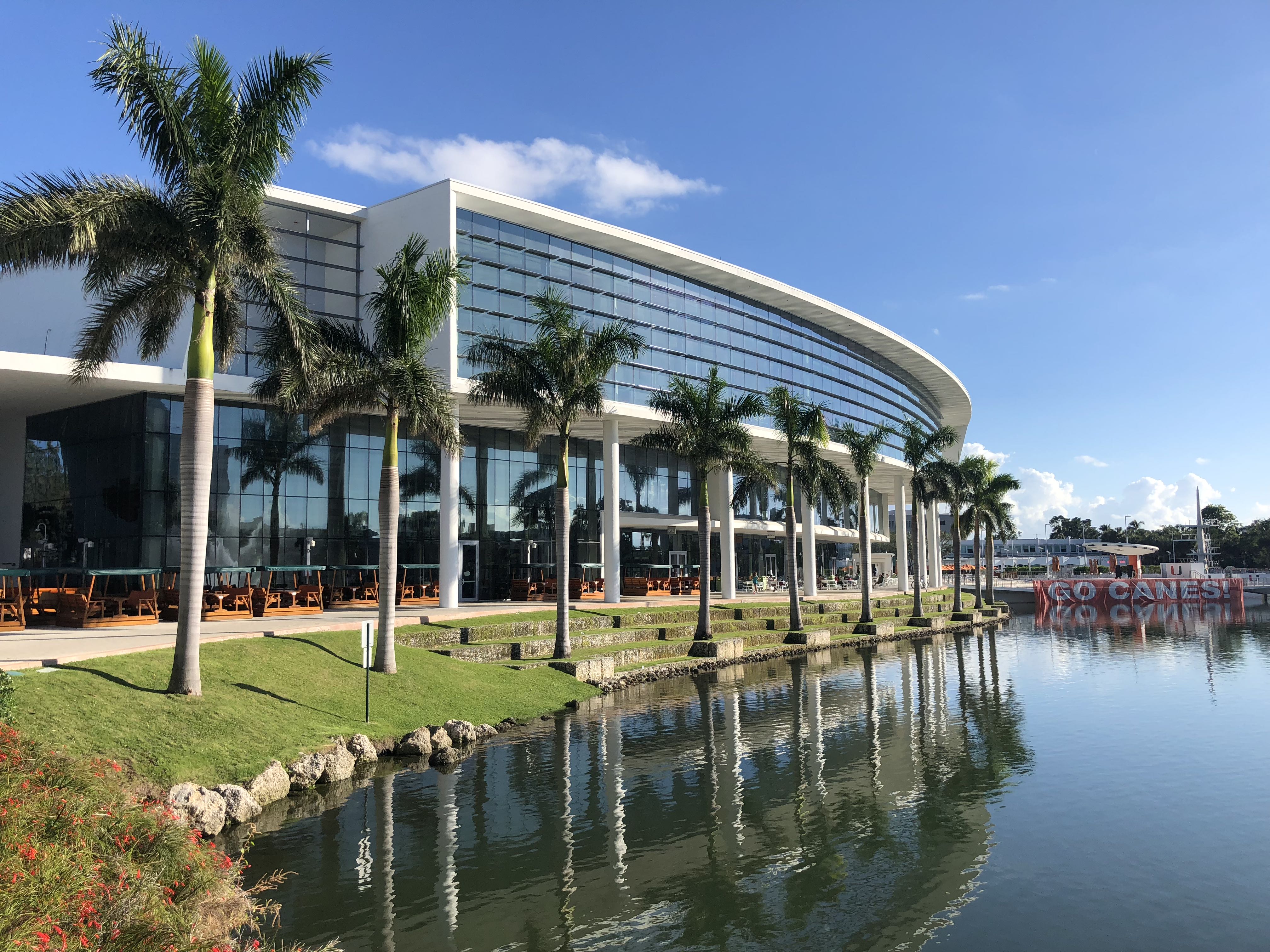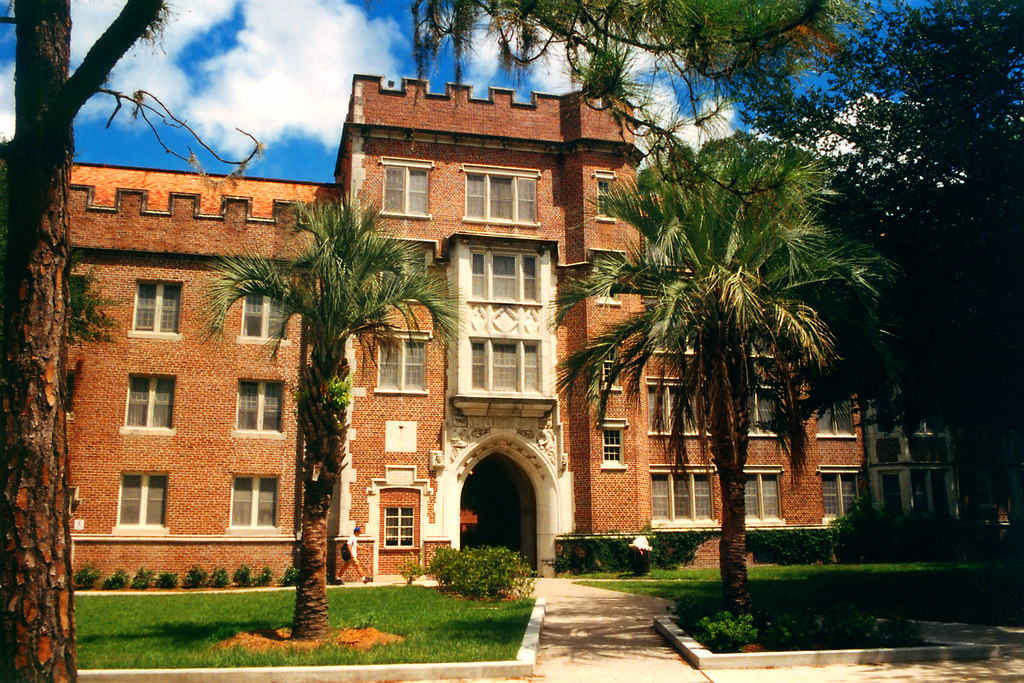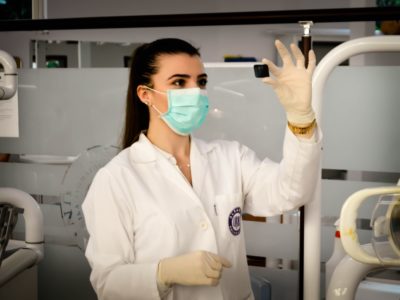If you possess a passion for public service or aspire to develop vaccines for emerging diseases, a career in public health might be for you. The COVID-19 pandemic highlighted the need for more talented professionals and funding in the public health space. If you find yourself considering a career in public health, look into getting a dual bachelor’s and master’s degree. These programs save a vast amount of tuition, provide a fast track to work in the industry and look attractive to potential employers on resumes. In fact, most public health professionals obtain a master’s degree, so these dual programs offer a career jumpstart in addition to award winning faculty engagement and a strong foundation in statistics and coding.
Check out the top 10 dual public health programs in the country!
10. University of Pennsylvania

What do you get when you combine a veterinary, business, dental, nursing and arts program together? The University of Pennsylvania’s interdisciplinary public health master’s program! The university offers a rigorous program that allows students with a demonstrated interest in public health to apply to the master’s program during their junior year of their undergraduate degree. The University of Pennsylvania’s tuition for an MPH (Master’s in Public Health) is currently $28,850, an affordable tuition rate for a competitive dual program.
Students also get opportunities to work with their favorite health organizations. For example, former students worked on a research team in Arequipa, Peru, focusing on oral rehydration therapy. With local opportunities abound as well, you can even conduct research on the efficacy of vaccine policies for the campus organization Campus Health Initiatives.
Inside the classroom the school offers a student-to-faculty ratio of 5:1, meaning that students receive individualized attention and opportunities to conduct research with professors. While the curriculum provides a solid foundation in biostatistics and methods of epidemiology, University of Pennsylvania professors are also committed to enhancing students’ individualized programs of study. This includes a wide range of electives which allows students to study public health in an interdisciplinary manner.
9. Emory University

Located in the public health capital of the world, public health students reap tremendous benefits at Emory University. In Atlanta, Georgia, Emory University sits near the Centers for Disease Control and Prevention, the Carter Center, the American Cancer Society, the Task Force for Child Survival and Development and more. In fact, CDC experts account for nearly half of Emory’s faculty members, who assist students in statistical methods labs and epidemiological methods. Through the practicum experience, students spend 200-400 hours working in a public health setting like a nonprofit organization, hospital or local health department.
“The Rollins Earn and Learn program allowed me to find a practicum experience at Power to Decide in Washington DC that turned into a job that allowed me to work remotely from Atlanta, which turned in to a full-time job offer after graduation,” Rollins alumnus Sarah Ashley Jolly said. “My experience at Power to Decide from intern to Programs Manager allowed me to grow professionally and personally with support from the Emory alumni network. I would not be where I am today without Emory’s MPH program.”
Faculty also involve students in their research, serving as both formal and informal mentors for public health students. Tuition for the university hangs at about $70,000, one of the lowest tuition costs in comparison to some of the other public health schools.
8. Temple University

Temple University’s public health research offers an impressive reach, ranging from homelessness and social justice to chronic illness and substance abuse. At Temple University, the 4+1 Program offers students an opportunity to obtain their Bachelor of Science and Master of Public Health degree in five years while working closely with faculty and developing critical skills in public health. Moreover, biostatistics is required in all areas of study to provide students the core statistical knowledge they need for public health research. The university also offers a competitive graduate tuition of $20,815 for out of state students, a huge savings for an incredible career leap.
The Temple University Public Health department maintains affiliations with a wide variety of research institutions, including Fox Chase Cancer Center, Public Health Management Corporation and the Philadelphia Department of Health. Students receive opportunities to participate in these organizations through student fieldwork and clinical placements, with over 5,000 community partnerships to pick from. Inside the classroom, students work with faculty conducting cutting edge research in areas such as cancer prevention, infectious disease and HIV/AIDS. For example, Professor Michelle C. Scarpulla received the Lindback Distinguished Teaching Award for her instruction in social and behavioral science. As an instructor in the program, she’s a huge advocate of Temple’s fieldwork experience.
“The experience provides students with the opportunity to take the knowledge and skills they’ve learned in the classroom and apply it in a real-world setting. Secondly, it helps students hone in on a specific job or area of public health in which they’d like to work,” Scarpulla said. “Third, for our undergrads especially, it provides them the opportunity to experience the culture, procedures and activities of public health agencies.”
Her colleague also emphasizes the significance of the opportunity.
“Since the fieldwork projects are linked to community needs, student projects can have an immediate, meaningful impact on health disparities,” Director of MPH in Social and Behavioral Sciences Dr. Annie Frankel said. “The fieldwork projects allow students to take pride in a project that is completely self-driven. They become experts in a given topic, and the sense of accomplishment when they are done helps bridge the gap between being a graduate student and becoming professionals in the field.”
Students also receive accolades for their research while at Temple. Recently, 17 students contributed artwork and poetry to Art for Change, an online exhibition illustrating the opioid crisis and its intersection with students’ lives. The American Public Health Association also awarded another Temple student recognition for her research on physical activity in Asian American communities.
7. University of Nebraska Medical Center

Nebraska ranks as one of the healthiest states in the nation, and a product of this strength comes in the form of the University of Nebraska Medical Center’s Master of Public Health program. At the university, students maintain access to an extensive network of healthcare organizations and nonprofits for practice-based experiences and research, such as the Center for Global Health and Development and the Center for Reducing Health Disparities.
The campus, found in the Harold and Beverly Maurer Center for Public Health, offers a student-faculty ratio of 3:1. The close proximity to faculty allows students to immerse themselves in practical and academic experience, which includes both epidemiology in public health and biostatistics. Moreover, the university utilizes an iEXCEL model for health care education, which uses simulation and visualization technology to reshape the way health care education is delivered. How’s that for immersion?
Students also obtain applied practice experience with governmental, non-governmental, nonprofit, industrial and for-profit organizations like the National Ebola Training and Education Center and the Global Center for Health Security. The best feature? UNMC’s College of Public Health’s tuition situates itself well below the national average of tuition at $977 per credit hour for out of state students. Plus, over 90% of MPH students find career positions within 12 months of graduation.
6. New York University

Public health comes to Broadway at NYU! Housed at 708 Broadway, the NYU School of Global Public Health truly feels made for the global student. The university’s alumni currently work in 44 countries across the world with a wide range of organizations addressing the most pressing international health concerns. While in the program, students work with award-winning faculty engaging in worldwide research, including demographic and health disparities associated with Hurricane Katrina and the impact of Ebola on healthcare seeking behavior in Liberia.
“Undergraduates at NYU can pursue specialized dual or 4+1 degrees that pair well with public health, streamlining the amount of time required to earn both a bachelor’s and master’s degree,” said Senior Associate Dean of Graduate Public Health Student and Alumni Affairs Dr. Julie Avina. “This approach is especially beneficial in preparing students as it allows them more time to develop meaningful relationships with faculty.”
Core courses in epidemiology and biostatistics lay the groundwork for this global research. For instance, faculty such as Biostatistics Department Chair Dr. Rebecca Betensky focus on methods for the analysis of studies with complex sampling, while Dr. Stephanie Cook researches health amongst disadvantaged individuals. Then, in their fifth year, students obtain practical experience themselves, obtaining 180 hours of public health practical experience. The program’s tuition currently runs at $44,880 and students receive access to many dynamic centers, labs and programs including the Center for Drug Use and HIV Research and Global Action for Urban Health.
“I wanted to earn a BA-MPH so I could advance career-wise at a quicker pace and gain the hands-on experience I needed in the field at a high academic level,” Global Public Health 4+1 alumnus Christina Marini said. “When I graduated, I got a job immediately as a research associate at the Partnership to End Addiction. NYU’s program certainly set me up for success and I highly recommend it to any student interested in public health.”
Marini also studied religion’s impact on health through diet while at NYU. If research in these areas locally or globally inspire you, consider NYU your career launch pad!
5. University of Miami

If spending the day at Miami beach sounds like a dream grad school experience, wait until you hear about the University of Miami’s research opportunities. This school is the place to be for public health research, receiving nearly $21 million in research grants from the National Institutes of Health. Through the university’s 4+1 program, public health students pay undergraduate tuition throughout their senior year while taking 12 credits of master’s level public health courses.
Notably, one of the university’s core programs of study is biostatistics, which provides immense help for students looking to carry out public health research. The classroom experience is bolstered by its location in one of the most culturally diverse cities in the nation. It doesn’t hurt that it also sits within the university’s world-renowned medical center, the UM Miller School of Medicine, either. Students also receive unique opportunities to conduct research and participate in foreign countries through the Capstone Field Experience, helping to prevent disease and promote worldwide health.
“My Capstone was with the Pediatric Mobile Clinic, a clinic that serves underinsured or uninsured children across Miami. I was in the pioneering cohort, and a student in the subsequent year was able to learn from my findings and build upon them to continue expanding the vision of the Pediatric Mobile Clinic to become a medical home for their patients,” MPH alumnus Monica Bahamon said. “Ultimately, the experience solidified my course work and research, and let me narrow in on my passion to utilize preventive healthcare services to propel healthy equity in disadvantaged populations.”
Moreover, University of Miami professors actively research drug and alcohol abuse, HIV, cancer, diabetes, obesity, environmental health and other illnesses. For the aspiring globe trotter, University of Miami is the perfect graduate experience.
4. University of Maryland

For public health students looking to be at the center of the action near our nation’s capital, the University of Maryland offers no better opportunity. The university grants students unparalleled access through internships and capstone projects to the unique resources of Washington DC, including federal agencies, military organizations and nonprofits. Many students also participate in the university’s research centers, including the Maryland Center for Health Equity, the Horowitz Center for Health Literacy and the Prevention Research Center.
University of Maryland alumni go on to achieve significant milestones in the public health industry.
“Throughout the pandemic I’ve worked for the University of Maryland Baltimore Center for Health and Homeland Security,” MPH alumnus Kimberly Stinchcomb said. “My MPH degree directly informed my current role. Through my course Foodborne, Waterborne and Airborne Infectious Diseases, I learned the specific characteristics of viruses and how they are transmitted.”
Stinchcomb currently works on the COVID-19 frontlines as an emergency preparedness consultant for the UMD Center for Health and Homeland Security. The courses she took in environmental health help her address these imminent challenges.
“Understanding the characteristics of viruses that enable them to spread has helped me explain to others why the protective policy changes have been warranted and how they can help us slow the spread,” Stinchcomb said.
More than 140 faculty conduct research and teach and mentor students in core concepts of epidemiology and biostatistics. Even more noteworthy, the school received the Excellence in Diversity Award, providing a foundation for a welcoming student community. For example, the university’s Prevention Research Center dedicates themselves to researching issues of mental health among LGBTQ+ communities. Tuition at the university currently runs $1,609 per credit hour for out of state students, an unbeatable price for the conferral of two degrees. The white house and public health truly overlap at the University of Maryland.
3. Boston University

Did you know that a Boston University research group recently studied cases of widespread chronic kidney disease in Central America? With 1,161 peer reviewed publications, Boston University offers unparalleled research opportunities across the globe. In fact, Boston itself homes the nation’s first public health department. Massachusetts even served as the model for the Affordable Care Act! This emphasis on research gives students firsthand insight into the most current thinking within the public health practice.
“My experience in BU’s public health program has helped prepare me for a future career in health management,” MPH student Reese Markland said. “I’ve been able to work with other classmates and in groups to discuss real-life public health disparities and ways of fixing them. It’s been so transformative.”
Students complete practicums to gain real-world experience at over 300 sites, including nonprofits, healthcare facilities and research institutions. For example, BU contains the National Emerging Infectious Diseases Laboratories and partners with institutions such as Boston Medical Center. In terms of tuition, BU meets 100% of demonstrated financial need for all first-year students and current tuition rates are $77,662.
The university boasts 361 faculty members who promote an “open door policy” that encourages students to work closely with their professors and experience their mentorship particularly in more challenging core biostatistics courses required in the program.
2. University of Florida

Looking for a program with a guarantee of employment upon graduation? The University of Florida may end up becoming your dream school. Boasting a 100% rate of graduate employment, the program offers invaluable career resources for its students. Research wise, the University of Florida’s tropical location gives students a unique opportunity to study and research emerging infectious diseases domestically and internationally.
Moreover, UF faculty engage in a wide variety of research areas from toxicology to food and nutritional security. The environment also allows students to assess environmental issues associated with climate change and weather events. The university provides access to over 200 research centers, such as the Emerging Pathogens Institute where students can work during their last semester. For example, students receive the opportunity to participate in the Global Health Case Competition, serving as a board member for a public health agency or volunteering in the field through a student association.
“I was able to take the knowledge I learnt around Community Health Needs Assessments in my coursework and actually work on several parts of the Community Health Needs Assessment process around the state of Florida through an internship,” University of Florida alumnus Omari Richins said. “Having the CHNA experience was actually the thing that set me apart in securing my Community Health Fellowship in Alaska prior to graduating.”
Richins’ work in UF’s MPH program led him to his future role as community health fellow with the Mat-Su Health Foundation in Alaska after graduation.
“Public health is very much about being in the community. Having the opportunity to partake in instrumentally important work through my internship has been a great base which I excelled from after my Master of Public Health program,” Ritchins said.
While tuition for the master’s program is listed as $1,255 per credit hour, Florida students obtain even more affordable rates. UF also provides students the opportunity to work with professors conducting research in a wide range of areas, including environmental infectious disease, food and nutritional security and global environmental change. Inside the classroom, students take a required core course in statistical methods for health science, important to both bachelor and master’s public health foundations. First stop: Gainesville. Last stop: cutting edge public health research.
1. Johns Hopkins University

Have you ever dreamed of working at international agencies such as UNICEF and the World Bank? These places house Johns Hopkins alumni, allowing them to achieve leadership roles in international health. Faculty prepare students to address the most challenging public health problems facing today’s world and regularly recognize outstanding faculty for their excellence in teaching. Tuition rates at the university are $71,280 and all applicants receive consideration for scholarship support.
The Johns Hopkins Bloomberg School of Public Health, the first and largest school of public health in the nation, is affiliated with more than 80 research centers and institutes. Moreover, with a 5:1 student to faculty ratio, students receive individualized attention from professors and engage in close collaboration in core courses such as biostatistics. Students also engage in a practicum experience that can take them anywhere locally or internationally. For example, one group of Johns Hopkins students travelled to Chad to study the impacts of the construction of a major oil pipeline on the country’s health. In the last five years, Johns Hopkins students interned in more than 75 countries with over 350 organizations worldwide.
“My practicum was my first time going outside of North America. What struck me the most about leaving was how much was the same. People are mostly thinking about the same things: how to build happier, safer and healthier lives and communities,” 2018 Johns Hopkins alumnus Shea Littlepage said. “My practicum showed me my public health career needed to be one of respecting and fitting into people’s complete, vibrant and ongoing lives.”
Littlepage worked on family planning and HIV-related issues in Uganda through the program’s practicum experience. If connection and building community are important to you, Johns Hopkins offers the chance to promote public health values locally and globally.



















